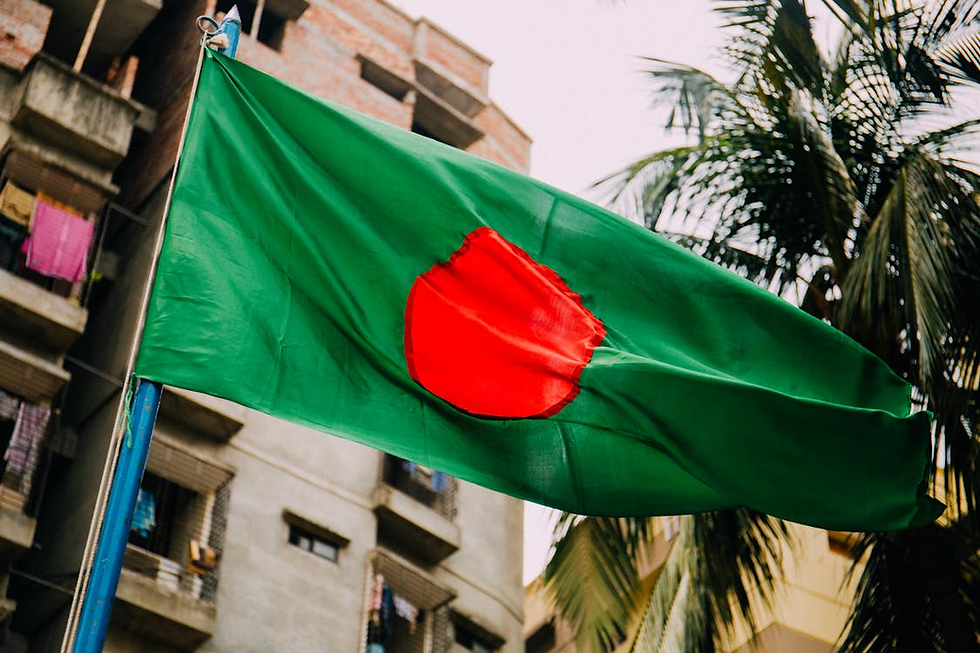Lebanese Protesters Allege Forced Disappearances and Torture
- Elizabeth Bratton

- Mar 30, 2021
- 3 min read
Updated: Dec 23, 2024
Lebanese security forces reportedly “forcibly disappeared and allegedly tortured” Tripoli-based activists who were protesting against a combination of strict COVID-19 lockdown laws, and a rapidly deteriorating economy. Human Rights Watch claims that these protesters “face apparently unsubstantiated terrorism charges”, meaning they will be tried before “inherently unfair” military courts.
On February 22nd 2021, at least 35 people - including two minors - were charged with terrorism, forming criminal associations, and stealing public property. These crimes allegedly occurred in the final week of January 2021; the protesters are also accused of using force against and trying to kill members of the security forces, arson, vandalism, and protesting without permission.
HRW reportedly spoke with “five detainees, the families of five protesters, two lawyers involved in the case, a judicial source, and Police Commander Major General Imad Othman”, however the national army could not be reached for comment. While the interviewees did describe incidents of violence among protesters - including arson and the throwing of Molotov cocktails - they said that these specific defendants were not part of such activities, and had not seen any evidence to indicate their involvement. One mother alleged that her 15-year-old son was tortured into confessing to crimes he had not committed.
Nineteen people - including the children - have since been released by the authorities, and 4 remain in detention. The other 12 are yet to have their identities and whereabouts confirmed, as the security services are keen to protect the “secrecy” of the investigations. Lawyer Ayman Raad was reportedly told by the military investigative judge that “the defendants will know they are charged when they are called in for interrogation.”
Relatives were allegedly deprived of information about the then-detainees’ whereabouts, and security forces denied having any such knowledge. The mother of 28-year-old Tarek Badawiyyeh recalls the toll that this had on her: “I thought maybe someone beat him or killed him, you know the situation in the country. For three days, I was living in hell. I thought my child was gone.”
34-year-old Ali Hashem remembers being physically assaulted while he was imprisoned; he was allegedly beaten, slapped, and kicked. This abuse reportedly took place while he was blindfolded and handcuffed. Guards said: “They told me, ‘You want freedom? F--- your freedom.” A separate detainee claims that he too was beaten, as officers attempted to coerce him into “implicating” another protester. He was threatened with being “hung in the balance” - a method of torture that involves “hanging a torture victim by their wrists tied behind the back”. As a result of this abuse, this detainee did falsely implicate another protester.
A 15-year-old, who was arrested while filling a container with gasoline at a service station, was allegedly a victim of "falaka": a form of torture that involves beating the soles of one’s feet. The teenager was also threatened with electric shocks, kicked and punched in the stomach, and spent his 16th birthday as a prisoner.
Only four of the accused were interrogated in the presence of a lawyer. All of the suspects were charged with the same crimes, however were provided with no information about the evidence that drove this decision. Lawyers say that their clients were presented with no video footage to justify their arrests; instead, the allegations were based on “information” and “informants or other confessions.” Both Lebanese and international human rights law state that defendants are entitled to know the evidence on which charges are based.
Enforced disappearances generally occur when someone is detained by state authority figures, who then refuse to reveal information about the victim’s whereabouts. Amnesty International explains: “Victims are frequently tortured and many are killed, or live in constant fear of being killed. They know their families have no idea where they are and that there is little chance anyone is coming to help them. Even if they escape death and are eventually released, the physical and psychological scars stay with them.”
Even prior to the outbreak of COVID-19, Tripoli was one of Lebanon’s most deprived areas. Many citizens were left with no source of income after a nationwide lockdown was introduced in January: a move that aimed to prevent hospitals from becoming overwhelmed. While the government did promise financial aid for its people, this support never arrived.

_edited.png)




Comments